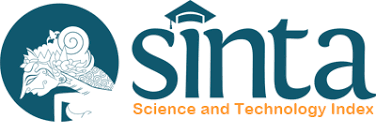Community Midwifery Practice PHBS Education In Households In Preventing Stunting In Toddlers
Keywords:
Infants and Toddlers, Stunting, PHBSAbstract
Stunting is one of the chronic malnutrition problems in society, especially in toddlers. Stunting is caused by a lack of nutritional intake that occurs over a long period of time due to the provision of food that does not meet nutritional needs. The direct causes of stunting are inadequate nutritional intake and a history of infectious diseases, while indirect factors are parental knowledge about nutrition, parental education, parental income, and the number of family members. Stunting can be prevented by several things such as providing exclusive breastfeeding, consuming a variety of foods with a healthy and balanced menu, getting used to PHBS, doing physical activities such as exercising, giving supplements to toddlers and monitoring children's growth and development regularly or routinely taking them to the integrated health post. Empowerment and education to the community need to start from the household, especially for pregnant women and mothers with toddlers because children are assets or generations whose growth and development must be maintained. Based on the results of a pre-survey conducted from May 30-31, 2024 in Notoharjo Village with unstructured interviews conducted by researchers through interviews with 10 pregnant women and mothers of toddlers. From the interview results, it was stated that 8 people (80%) did not understand PHBS with stunting. While 2 people (20%) other mothers already understood PHBS with stunting. So the role of health workers plays an important role in providing education about the importance of PHBS with stunting which are interrelated. This aims to increase knowledge related to PHBS in reducing the incidence of stunting.
References
Apriani, L., Gizi, J., Masyarakat, K., & Semarang, U. (2018). Hubungan Karakteristik Ibu, Pelaksanaan Keluarga Sadar Gizi (Kadarzi) Dan Perilaku Hidup Bersih Sehat (Phbs) Dengan Kejadian Stunting (Studi Kasus Pada Baduta 6 - 23 Bulan Di Wilayah Kerja Puskesmas Pucang Sawit Kota Surakarta). Jurnal Kesehatan Masyarakat (e-Journal), 6(4), 198–205.
Fadilah, S. N. N., Ningtyias, F. W., & Sulistiyani. (2019). Faktor Genetika, Pola Asuh dan Perilaku Hidup Bersih dan Sehat (PHBS) sebagai Faktor Risiko Stunting pada Balita. In Digital Repository Universitas Jember. http://repository.unimus.ac.id/411/
Handika, A., & Rohmani, S. (2021). Hubungan PHBS dan Asi Eksklusif Dengankejadian Stuntingpada Anak di Wilayah Kerja Puskesmas Kedaung Barat Kabupaten Tangerang 2021. Nusantara Hasana Journal, 2(2), 141-154.
Hasan, A., & Kadarusman, H. (2019). Akses ke Sarana Sanitasi Dasar sebagai Faktor Risiko Kejadian Stunting pada Balita Usia 6-59 Bulan. Jurnal Kesehatan, 10(3), 413. https://doi.org/10.26630/jk.v10i3.1451
Dewi, Nuning Nurna, dan Selva Handriyani. (2024). Penguatan Mindset Dan Keterampilan Wirausaha Memproduksi Olahan Alpukat Dalam Peningkatan Gizi Ibu Hamil Dan Balita Untuk Penguatan Stunting Jurnal ADAM : Jurnal Pengabdian Masyarakat 3, no. 1 (Februari 8, 2024): 157–160. Diakses Juni 18, 2024.
https://jurnal.spada.ipts.ac.id/index.php/adam/article/view/1777.
Kemenkes RI. (2018). Buletin Stunting. Kementerian Kesehatan RI, 301(5), 1163–1178.
Lestari, D. Sulistiawati, F., & Naelasari, D. N. (2021). Sosialisasi Perilaku Hidup Bersih Dan Sehat Serta Gizi Seimbang Pada Ibu Hamil Untuk
Meningkatkan Imunitas Pada Masa Pandemi COVID-19. Abdinesia: Jurnal Pengabdian kepada Masyarakat, 1(1). 21-28.
Lynawati. (2020). Hubungan PHBS ( Perilaku Hidup Bersih Sehat ) Terhadap Stunting di Desa Kedung Malang Kabupaten Banyumas. Jurnal HUMMANSI (Humaniora, Manajemen, Akuntansi), 3(Maret), 41–46..
Natsir, M. F. (2019). Perilaku Hidup Bersih Dan Sehat (PHBS) Pada Tatanan Rumah Tangga Masyarakat Desa Parang Baddo, 1(3).
Purwanto, D., & Rahmad, R. E. (2020). Pengaruh Perilaku Hidup Bersih dan Sehat Terhadap Stunting Pada Balita di Desa Jelbuk Kabupaten Jember. Jiwakerta: Jurnal Ilmiah Wawasan Kuliah Kerja Nyata, 1(1), 10-13.
Sulasmi, I., Dewi. S, A. C., & Karmila, M. (2019). Analisis Perilaku Hidup Bersih Dan Sehat(Phbs) Terhadap Kemampuan Motorik Anak Usia Dini Di Pos Paud Al Masyithoh Plamongansari. Paudia : Jurnal Penelitian Dalam Bidang Pendidikan Anak Usia Dini, 7(2), 85–95. https://doi.org/10.26877/paudia.v7i2.3271
Wati P. D. C. A., & Ridlo, I. A. (2020). Perilaku Hidup Bersih dan Sehat pada Masyarakat di Kelurahan Rangkah Kota Surabaya. Jurnal Promkes: The Indonesian Journal of Health Promotion and Health Education, 8(1), 47- 58.
Wirahaditama, himawan. (2018). Artikel determinan kesehatan tentang perilaku hidup bersih dan sehat (PHBS) masyarakat desa dalam meningkatkan kesehatan masyarakat. 6(2). https://doi.org/10.31219/osf.io/92kfb.

















